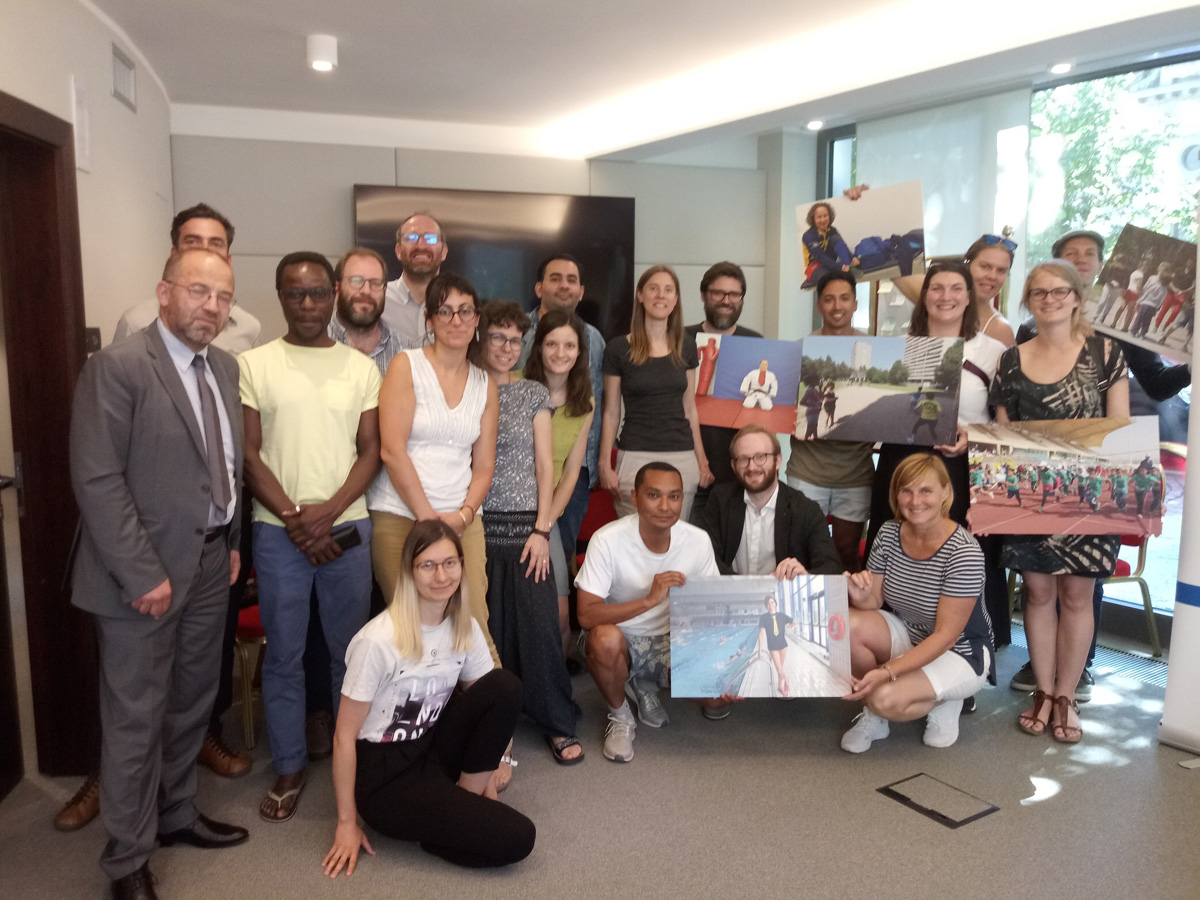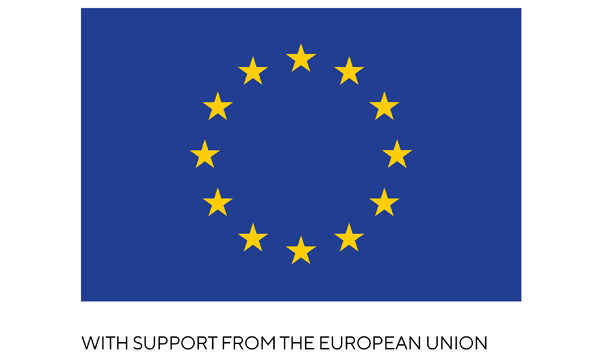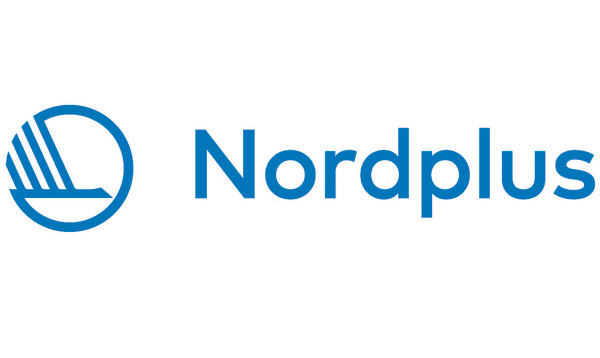First glimpse of four new initiatives that will bring sport and non-sport organisations and refugees together in collaboration
Posted June 20, 2019
At the second partner meeting in Trento, Italy, the MOVE Beyond project’s implementing pairs gave an inspiring overview of the pilot actions they will run in the coming months, revealing that they have already secured support from municipalities, other humanitarian organisations, NGOs and friendship associations to carry out their activities.
Here are some exclusive insights into four approaches that aim to MOVE Beyond common boundaries to including refugees in sport and community activities.
Denmark
DGI and the Danish Red Cross are focusing their pilot action on one municipality and an initiative called “Friends Show the Way”, which pairs refugees with a Danish friend who will “show the way” to becoming a member of their local sport club.
“We want to build a stronger bridge to activities that are already going on,” DGI Inclusion Consultant Siliane Bjerre said.
She said that clubs often lack volunteers or individuals who have contact with the target group.
“Often the social person is in need – not only to run the activities, but to make the refugee feel at home and want to come again.”
As part of their pilot, DGI and the Danish Cross are mapping local actors who can work together to create an inclusive environment for refugees and asylum seekers. These include the Danish Refugee Council and the Somali-Danish and Syrian-Danish friendship groups.
Italy
UISP Trento and ATAS are working together with the asylum centre ASD Intrecciante and local university students to create a multicultural football team and enter them into an amateur 11-a-side football league that will become an active example of social inclusion and in contrast to racism and intolerance.
The league operates on the principle of providing a “third half” that gives opportunities to each player (be they an asylum seeker or not), to play a role in their association that goes beyond just the game (e.g. speaking in public, on the radio, helping with organising the matches).
As the young men who live at the asylum centre usually live there for a year or more as their cases are being processed, the league offers year-round social activities that help introduce them to local community members.
Sweden
In planning their pilot project in Värnersborg, north of Gothenburg in Sweden, Save the Children and SISU noticed that refugees do not only arrive with a lack of knowledge of the local culture and sport culture, but the local sport culture also lacks the knowledge and experience of working with refugees.
“We are reinforcing this point all the time,” Save the Children Domestic Programme Manager Sara Stigzelius says.
“If you’ve never lived it, you don’t know how.”
The partner pair are working with the art and cultural centre Restad Gård and StreetGames Gothenburg to help train refugees to become International Coordinators of Physical Activity. Part of the training will include how to seek funds to build on their work after the pilot. They will focus on four target groups to recruit the participants: strong women, a youth group, and a cricket and floorball club.
In particular, the initiative will focus on supporting unaccompanied children who have turned 18 and need support in entering into employment. The emphasis is on empowering the refugees by giving them central roles in organising the activities.
“It’s not a top-down initiative; you’re not a charity for refugees. You’re forming a partnership and bringing their knowledge to the fore,” Stigzelius said.
UK
StreetGames and the SPARC social enterprise are joining forces with the Devon and Cornwall Refugee Support Centre and Plymouth City Council to implement the Club1 readiness model that is a three-step model that starts from creating a safe house, to conducting group visits, to supporting the refugees in “going solo” and independently getting involved in community sport.
But the first challenge is to convince local sport and leisure centres that physical activity and community sport offer a way of welcoming and enhancing the wellbeing of refugees.
“At the moment we’re seeing that wellness activities are not priorities, they’re more seen as a ‘nice to have’,” StreetGames Project Coordinator Josh Saydraouten said.
“With our pilot, we want to be confident that when we step away from this project knowing that we’ve left the participants in a good place. This is also about changing the attitudes of leisure centre staff to better accommodate the needs of the target group.”
Keep up-to-date and learn more
MOVE Beyond is a two-year Erasmus+ Sport Collaborative project led by ISCA. Browse the Integration of Refugees Through Sport website to access free resources that will support you in implementing programmes for and with refugees and asylum seekers.
By Rachel Payne, ISCA




